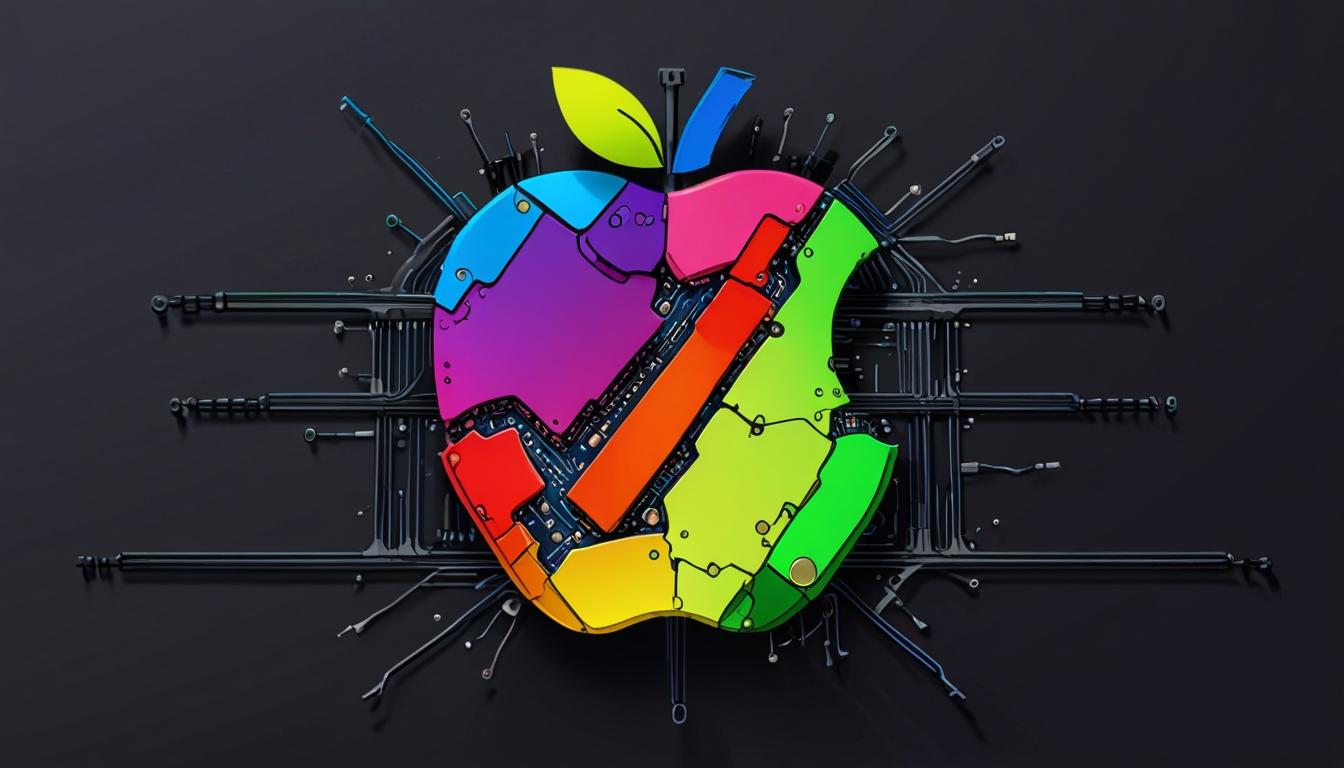Apple has initiated a major restructuring of its artificial intelligence (AI) operations, splitting up its previously unified AI team in a bid to accelerate progress and improve outcomes. The changes involve a reallocation of leadership roles within its AI ventures, particularly focusing on its Siri voice assistant and robotics division, marking a significant shift in how the company develops AI technologies.
The restructuring comes after a period marked by internal tumult, persistent delays, and intensifying competition from rivals such as Google and Amazon, which have been advancing swiftly in AI capabilities. Since 2018, Apple’s AI and machine learning efforts were led by John Giannandrea, a former Google executive brought in by CEO Tim Cook to enhance the company’s AI progress. However, with key projects missing deadlines and slower-than-expected development, Apple has begun to phase Giannandrea out of its central AI initiatives.
One of the first major moves took place in March 2025, when Apple separated Siri’s engineering team from under Giannandrea’s oversight. This team was placed under the leadership of Mike Rockwell, who formerly led the Vision Pro headset teams. Rockwell now reports directly to Craig Federighi, Apple’s software chief. He has brought with him key personnel from the Vision Pro projects to help revamp Siri’s development strategy. The aim is to boost Siri’s capabilities, aiming for a more personalised user experience with enhanced contextual awareness. However, some of these planned improvements have been delayed until next year as the new team adjusts.
Shortly after adjusting Siri’s management, Apple transferred its robotics division out of the AI group and into the hardware department under Senior Vice President John Ternus, responsible for engineering major products like the iPhone and Mac. The robotics division is reportedly working on innovative projects including a table robot featuring an iPad-like display and mobility, as well as a mobile robot designed for videoconferencing and smart home control. This change reflects Apple’s intention to better integrate robotics with its hardware expertise to develop new product categories that blend AI with physical devices.
The impetus for these shifts appears to stem from several challenges within Apple’s AI efforts. Siri’s performance lagged behind competitors, with internal assessments revealing it failed to meet nearly a third of user commands. The AI team also encountered internal conflicts related to budget and workflow management. Some employees reportedly referred to the group as “AI/MLess” to express frustration over the lack of significant achievements. Additionally, Apple’s intelligence platform’s soft launch raised concerns about the company’s AI capabilities. These factors have seemingly diminished Cook’s confidence in Giannandrea’s ability to deliver on ambitious AI goals, resulting in a redistribution of responsibilities to other leaders with strong hardware and software backgrounds.
Further complicating Apple’s situation were internal disagreements in 2023 concerning financing for AI chips, which hindered the company’s capacity to keep pace with competitors advancing rapidly in generative AI and conversational assistants.
Looking ahead, Rockwell’s leadership of the Siri team is expected to bring about substantial enhancements, although these developments might not be fully realised until the following year. Meanwhile, Ternus’s stewardship of the robotics division is set to explore innovative synergies between robotics and hardware, potentially leading to new product categories.
This overhaul signals a notable shift in Apple’s approach to embedding AI within its technology ecosystem. By placing Siri and robotics under leaders with deep expertise in hardware and software engineering, Apple aims to streamline decision-making and boost its competitive position. Rumours also suggest that Giannandrea could eventually step back from AI leadership, paving the way for new management of the company’s broader AI ambitions.
The technology industry will be closely monitoring how Apple’s reorganisation affects its AI trajectory throughout 2025, assessing whether these strategic moves will enable Apple to narrow the gap with AI leaders and potentially transform users’ interactions with technology. The company’s success in delivering cohesive, high-quality AI-driven experiences will be crucial as it navigates a fiercely competitive AI landscape.
Source: Noah Wire Services
